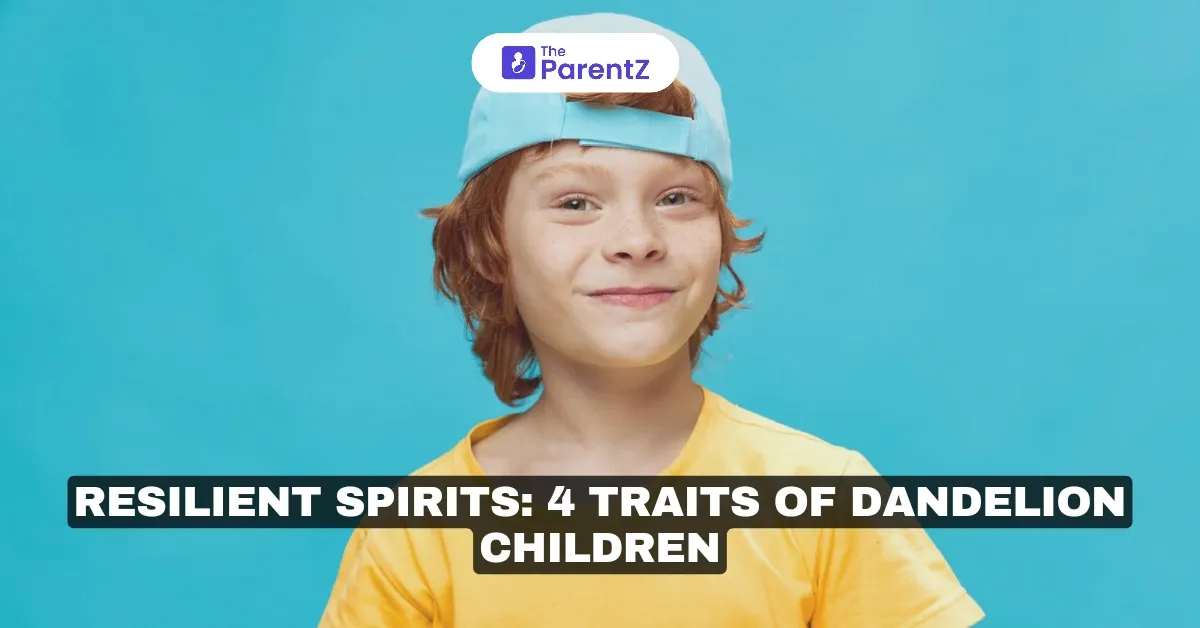Just like dandelions that push through concrete cracks and bloom in the harshest conditions, some kids seem to thrive no matter what life throws at them. These remarkable children are called "dandelion children," – and their ability to overcome challenges has taught experts volumes about resilience in kids.
Child psychologists have long studied these naturally resilient children to understand what makes them different from their peers, who might struggle more with adversity. Their findings have revealed fascinating insights into how some children manage to bounce back from tough situations.
Let's explore the four key traits that make dandelion children so remarkably tough!
#1. They Roll with the Punches
Dandelion children have an impressive ability to handle setbacks without falling apart. When things go wrong, they experience sadness or frustration like everyone else, but they don't stay stuck in those feelings. Instead, they process their emotions and move forward.
For example, when a child doesn't make the school sports team, a dandelion child might feel disappointed for a few days but then channel their energy into joining another activity. This adaptability and emotional recovery are crucial aspects of resilience in kids.
#2. They're Problem-Solving Ninjas
These children don't wait passively for adults to solve their problems. They actively look for solutions and aren't afraid to try different approaches. When faced with a challenge, they naturally break it down into manageable pieces.
Take homework struggles, for instance. A dandelion child might try various study methods, consult their textbook, or ask classmates for help before turning to their teacher. They view problems as interesting challenges rather than impossible obstacles.
#3. They Build Strong Connections
One of the most remarkable traits of dandelion children is their ability to form and maintain relationships. They seem to understand instinctively that having a strong support system makes difficult times more manageable.
These children typically have at least one trusted adult in their lives – whether it's a parent, teacher, or mentor. More importantly, they actively nurture these relationships and often reach out to others, like befriending new students or supporting peers during tough times.
#4. They See the Silver Lining (Most of the Time)
This doesn't mean that dandelion children are unrealistically optimistic. Rather, they have an innate ability to find opportunities for growth or learning in challenging situations. Building resilience in kids often involves nurturing this ability to find positive aspects even in difficult circumstances.
During the COVID-19 school closures, for instance, while many children struggled with the changes, dandelion children often discovered new interests or appreciated the extra family time.
Developing These Traits in All Children
The encouraging news is that while some children naturally display these dandelion traits, any child can develop resilience with proper support and guidance. It's similar to developing a muscle – requiring consistent practice and patience.
Parents can help foster these traits by:
- Allowing children to solve age-appropriate problems independently
- Focusing praise on effort and strategy rather than outcomes
- Teaching that mistakes are valuable learning opportunities
- Helping children identify and express their emotions healthily
Conclusion
Every child has the potential to develop these dandelion characteristics. Resilience isn't about avoiding failure – it's about learning how to recover and grow stronger from challenges. Just like those persistent dandelions breaking through pavement, children often possess more strength than adults realize.
Understanding how dandelion children think and behave provides valuable insights into fostering resilience in all children. In today's increasingly complex world, building emotional resilience isn't just beneficial – it's crucial for children's long-term well-being and success.
Parents and educators should remember that even the most resilient children have difficult days. The goal isn't to achieve perfection but to help children develop stronger coping skills over time, becoming more resilient with each challenge they face.









Be the first one to comment on this story.